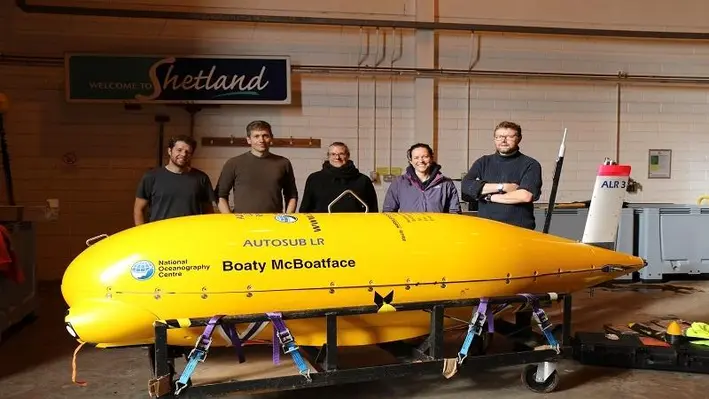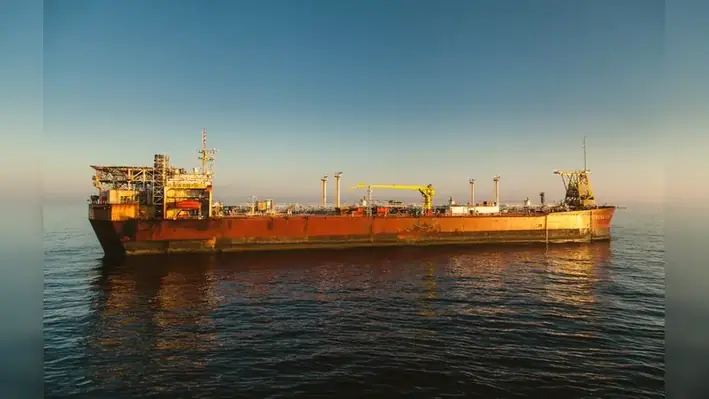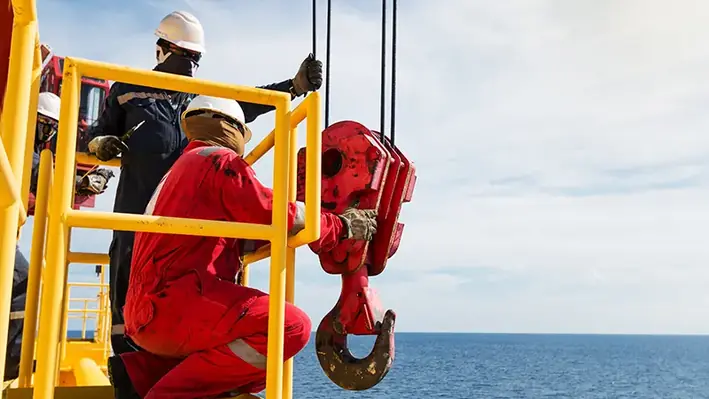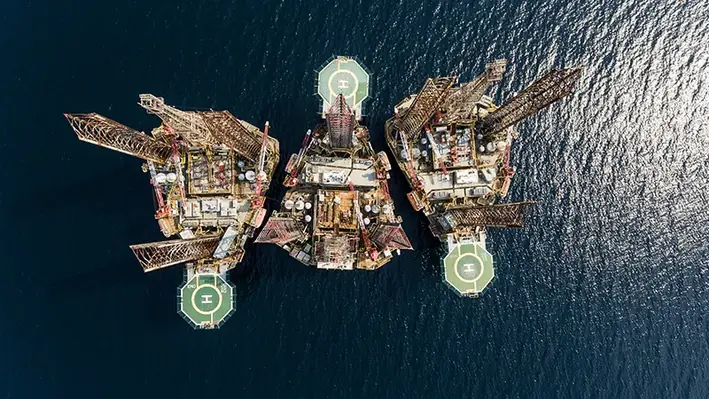
Boaty McBoatface, a robot submarine lovingly named through an Internet poll gone awry, is being utilised by the National Oceanography Centre (NOC) to conduct research on end-of-life oil fields off the coast of the Shetland Islands, North Sea.
The robot will be exploring several oil and gas structures in a bid to revolutionise the way marine surveys are conducted and ultimately protect the marine environment while helping the industry transition towards net-zero.
The Autonomous Techniques for infraStructure Ecological Assessment (AT-SEA) project, led by the NOC will trial the concept of using submarines like Boaty for high-tech, low-impact monitoring to pick up any potential environmental impacts at these industrial sites. This may eventually replace the current approach for environmental monitoring for decommissioning that requires dedicated ships and teams of people offshore.
The robots used will gather data on the water, pollutants and currents, as well as taking images of the sea floor. The team will test whether these robotic systems can gather equivalent information to the surveys currently done using ships. In doing so, emissions, risks and the cost of these operations will be significantly reduced in the future, thanks to the automated technology being developed at the NOC.
Project Lead for AT-SEA, Daniel Jones from the National Oceanography Centre, explained, “The overall goal of the project is to improve the environmental protection of the North Sea at a reduced cost and impact to the environment. We aim to demonstrate how this leading robotic technology from the NOC could be used worldwide to support this crucial ocean monitoring.”
There are currently thousands of oil and gas structures in the sea that are approaching the end of their lives – in UK waters alone there are nearly 500. As part of decommissioning, they typically need to be removed and the environment returned to a safe state. To ensure that no harmful effects will occur to the marine environment, decommissioning operations need to be supported by an environmental assessment and subsequent monitoring.
Dr Jones continued, “This technology has the potential to change the way marine surveys are carried out in the future. Autonomous submarines could offer many advantages over current approaches; improving the quality and quantity of environmental information while cutting the cost and environmental impact for a survey ship and its crew. The AT-SEA project will test this concept in UK waters and carry out the first fully autonomous environmental assessment of multiple decommissioning sites.”
As well as the decommissioned sites, the robot will visit a special marine protected area that is known to have natural leaks of gas, to check the robot can reliably detect a leak should one occur in the future.




